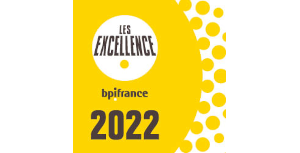Filing a Soleau envelope with the INPI (The French National Institute of Industrial Property) is often among the first steps taken by creators of original ideas to establish simple and inexpensive proof of creation. In patent matters, filing the description of an invention as a “Soleau envelope” before subsequently filing a potential patent application is a common strategy among many applicants. The simplicity of this procedure (especially since the creation of the e-Soleau envelope, which is entirely digital) and its low cost (fifteen euros in taxes for a ten-megabyte file, with a five-year retention period) partly explain its great popularity.
But what exactly is a Soleau envelope used for, and what rights does it confer?
Firstly, it is important to remember that a Soleau envelope does not confer any intellectual property rights over its content, unlike a patent or a trademark, for example. In other words, a Soleau envelope cannot be enforced against a third party who reproduces its content, whether it be a technical invention, an aesthetic creation, or an original idea.
However, a Soleau envelope allows for claiming personal priority in case of a dispute, due to the certain date and ownership it provides for its content. In patent matters, a Soleau envelope can serve as proof of prior personal possession in France, protecting against the consequences of an infringement action based on a later-filed patent that describes the object contained in the Soleau envelope (according to the provisions of Article L613-7 of the Intellectual Property Code).
It is also worth noting that the right of prior personal possession is inalienable as such, attached to its owner, and can only be transferred with the business, or the company or part of the company to which it is attached.
In summary, the right of prior personal possession, which can, for example, be proven using a Soleau envelope, a bailiff's report, or timestamping (such as that offered by our firm, based on registration in an unforgeable Blockchain-type ledger), is a defensive right that can only be opposed under very specific conditions and is territorially limited.
This right, provided for by the Intellectual Property Code, is applicable before French courts, which until recently were the only ones competent to adjudicate disputes based on a European patent effective in France (and, of course, on French patents).
So, what about the right of prior personal possession in the context of a dispute adjudicated by the Unified Patent Court (UPC) based on a European patent under its jurisdiction?
It should first be recalled that since June 1, 2023, a new jurisdiction, the Unified Patent Court (UPC), has been established with the competence to centrally adjudicate disputes over European patents for 17 member states of the European Union (as of the writing of this article, with 8 other states still able to join), during a transitional period lasting at least until 2030. However, during this transitional period, only Unitary European Patents (also issued since June 1, 2023) and “classic” European patents that have not opted out of the UPC's jurisdiction can be the subject of an action before the UPC.
The UPC offers patent holders under its jurisdiction the possibility to centrally initiate infringement actions against third parties for infringing acts committed in any or all of the 17 member states of the UPC Agreement.
For third parties who have established a right of prior personal possession, for example by filing a Soleau envelope, the question arises of the enforceability of this right before the UPC to escape the consequences of presumed infringement.
The UPC Agreement provides in its Article 28 a fiction of a national patent for the invention protected by the European patent, on the basis of which it must be determined if its holder would have had the right to a right of prior personal possession. The Agreement thus refers to the national law of each of the member states to the Agreement.
Therefore, in each member state where a provision of prior personal possession exists, as is the case in France for example by holding a Soleau envelope, its owner enjoys such a right against the opposed European patent.
This right can be invoked, in particular, in a defense brief to an infringement action before the UPC (provided for by Rule 24 of the UPC's Rules of Procedure), or in a preventive brief in case of suspicion of imminent infringement action against it.
Thus, the existence of a right of prior personal possession can have the effect of "fragmenting" a judgment of infringement that is intended to be unitary for the 17 member states, if this right allows escaping infringement in one of these states. In practice, if infringement in at least one other member state were to be upheld by the judges, it is likely that the judgment, and in particular the determination of damages inflicted on the infringer, will simply not take into account the 'infringing' volume realized in the state where the prior personal possession has been recognized.
What Strategy to Adopt in This New System?
As we have just seen, the establishment of a right of prior personal possession still has its place in the system established by the UPC Agreement and remains an effective means of establishing personal antecedence.
However, the territoriality of this right limits its scope in the context of acts committed across numerous territories, unless multiple rights have been established (for example, by completing similar formalities in parallel in several states, justified perhaps by an establishment or activity in these states). It should be remembered that this situation was the same before June 1, 2023, when each national jurisdiction was competent – and therefore competent to judge an exception of prior personal possession on its territory, which had to be established independently in each territory.
In any case, the effectiveness of proof of prior personal possession, such as a Soleau envelope in France, depends mainly on the quality of its content, which must correctly identify its owner (a company, but also its possible subsidiaries – filing in the name of a subsidiary does not necessarily confer rights to another subsidiary of the same company) and the subject of the invention. On this last point, it should be recalled that a vague and approximate description of concepts or ideas significantly reduces the possibility of effectively opposing the content of the Soleau envelope in a dispute. It is thus advisable to describe the means of realizing the invention as detailed as possible and to attach, if possible, drawings, plans, or photos.
As mentioned at the beginning of this article, in the field of technical inventions, only the filing of a patent application can establish rights enforceable against third parties, and at the same time establish a 'universal' antecedence with respect to subsequent third-party patent applications.
Our experts are at your disposal to assist you in establishing your rights, particularly in identifying patentable inventions among your Soleau envelope filings and in filing patent applications in France and worldwide.
By Jan BERTRAM













